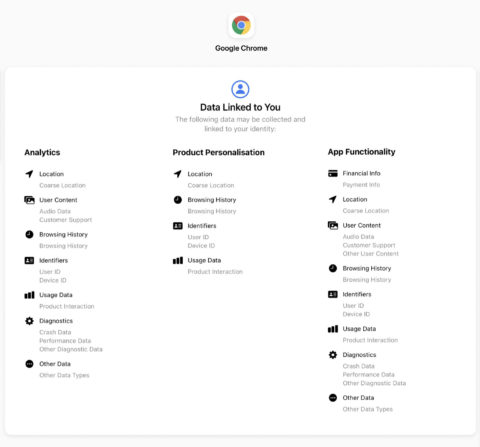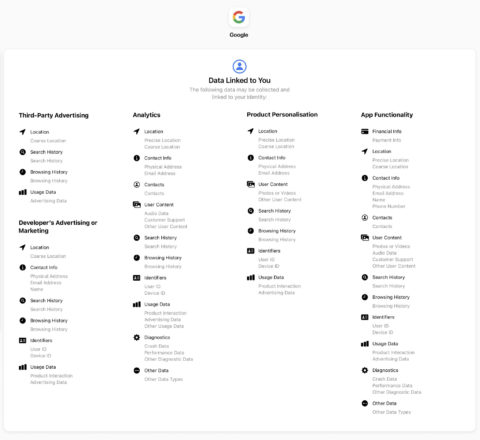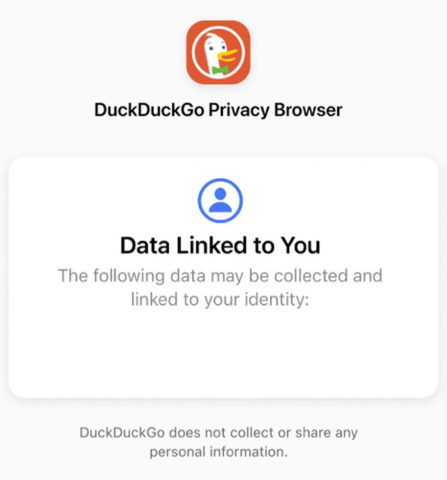Google has finally updated its iOS apps to comply with Apple’s iOS 14 privacy changes, prompting rival browsers to scoff at just how much personal information Google requires from users.
Last year, Apple made it mandatory for developers to fill out a ‘Data Linked to You’ section on the App Store page for their apps, to give users a transparent look at what sort of data is collected or used for a given service. Google dragged its heels updating its apps to show this information almost right up until Apple’s deadline, which critics have said proves it had something to hide.
Certainly, the long list of permissions Google’s apps require makes for worrying reading. You can scroll through this data in full for Google Chrome, Google Search, or indeed any app by scrolling to the bottom of its App Store page.
For Apple’s built-in apps like Photos and Safari, which aren’t listed on the App Store, you can visit Apple’s privacy microsite to see the same app transparency data. Considering Apple’s stance on privacy, it’s no surprise to see that Safari asks for a lot less from users – and that it anonymizes data where possible.
With that in mind, privacy-first search engine DuckDuckGo has fired shots at Google in a tweet, saying “spying on users has nothing to do with building a great web browser or search engine.” By comparison, its own web browser requires a total of zero permissions to operate. Even better than Safari.
Of course, that’s a biased and slightly unfair comparison. Google and Apple offer plenty of features DuckDuckGo doesn’t, many of which would be literally impossible without the requisite data. Most of these are optional.
But for those who aren’t comfortable sharing so much personal data, it’s another reminder that alternative browsers and search engines do exist – and we’ve got an in-depth roundup of the best in the biz coming up in the next few weeks, so stick around!





